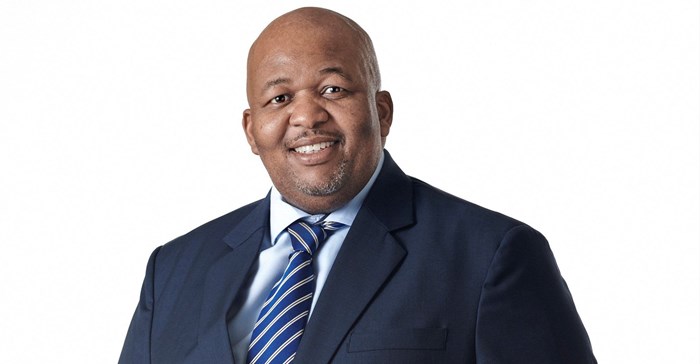Dan Marokane today tackles the hardest job in South Africa: getting the lights back on. As CEO of state power utility Eskom, he takes on an organisation hampered by alleged coal theft and sabotage, which faces financial and technical crises.

New Group Chief Executive of South African power utility Eskom, Dan Marokane, poses for a photograph. Source: Reuters/Emil von Maltitz/Eskom/Handout
He will be working with a government shareholder that has a conflicted vision for the country's future energy mix and is struggling to move forward on a major overhaul of its electricity supply industry.
As South Africa heads for national elections in May, turning Eskom around and solving a persistent power crunch could rescue Africa's most industrialised economy from a cycle of decline, Eskom's board chairman told Reuters.
Failure would mean the country is stuck with the status quo of crippling blackouts that currently cut off electricity for everything from homes and businesses to traffic lights and hospitals for up to 10 hours every day.
"There are two things here that need to be done simultaneously," Mteto Nyati, the chairman of Eskom's board of directors, said in an interview.
"One is to fix the current business. And the other is to reposition and restructure Eskom so that it can be relevant for the future."
Nyati said the utility's incoming boss, who holds degrees in chemical and petroleum engineering as well as an MBA, possesses the technical know-how and leadership skills to succeed where so many others have failed.
Marokane, who Eskom said will not speak publicly until he formally begins his tenure on Friday, previously served as a senior Eskom executive for five years until 2015.
"He's going to be able to learn and hit the ground running," Nyati said.
Others are less optimistic.
Eskom's role in powering the country's economy has made the CEO job South Africa's most high-profile executive position. But its challenges mean fewer and fewer corporate high-flyers are willing to take it on.
"Dan is likely the most qualified person on the short list," said Peter Attard Montalto, managing director of the consultancy firm Krutham. "But that is an exceptionally low bar."
Revolving door
Eskom's top job has become a revolving door through which more than a dozen CEOs have passed over the past 15 years, serving in either a permanent or acting capacity.
Two of the previous permanent appointees were Phakamani Hadebe and Andre de Ruyter. The former left citing the damage the job had done to his health. The latter allegedly had poison slipped into his coffee.
Eskom is still recovering from a period of pervasive corruption that engulfed many South African state-owned companies under former President Jacob Zuma. Zuma denies wrongdoing.
Marokane has portrayed himself as a victim of the so-called state capture era, having been suspended from his Eskom job with several other executives.
"I was not a moderate performer," he told a commission investigating state capture in 2020. "To be sitting at home with a cloud of suspicion and poor performance on you, it's very painful," he said, based on the transcript of his testimony before the commission.
Marokane comes to Eskom after a stint at Tongaat Hulett, where he attempted to rescue the sugar company following an accounting scandal that eventually saw it placed in bankruptcy protection.
On his return to Eskom, he will take on a distressed company dependent upon government bailouts and that needs to push through plans to unbundle it into separate generation, transmission and distribution businesses, a process that has become bogged down in bureaucracy and red tape.
He will face a daily struggle to keep Eskom's fleet of ageing plants online while assuaging the concerns of donors that have pledged billions of dollars to wean South Africa off coal, which generates some 80% of its power.
Marokane will need to push for new generating capacity - largely in the form solar and wind - overcoming resistance to renewable power from some quarters of an African National Congress-led government.
"It's an extremely tough job," de Ruyter, who spent three years as CEO before his alleged poisoning and a falling out with the Eskom board, told Reuters.
"Maybe he should avoid having a personalised coffee mug."





















































